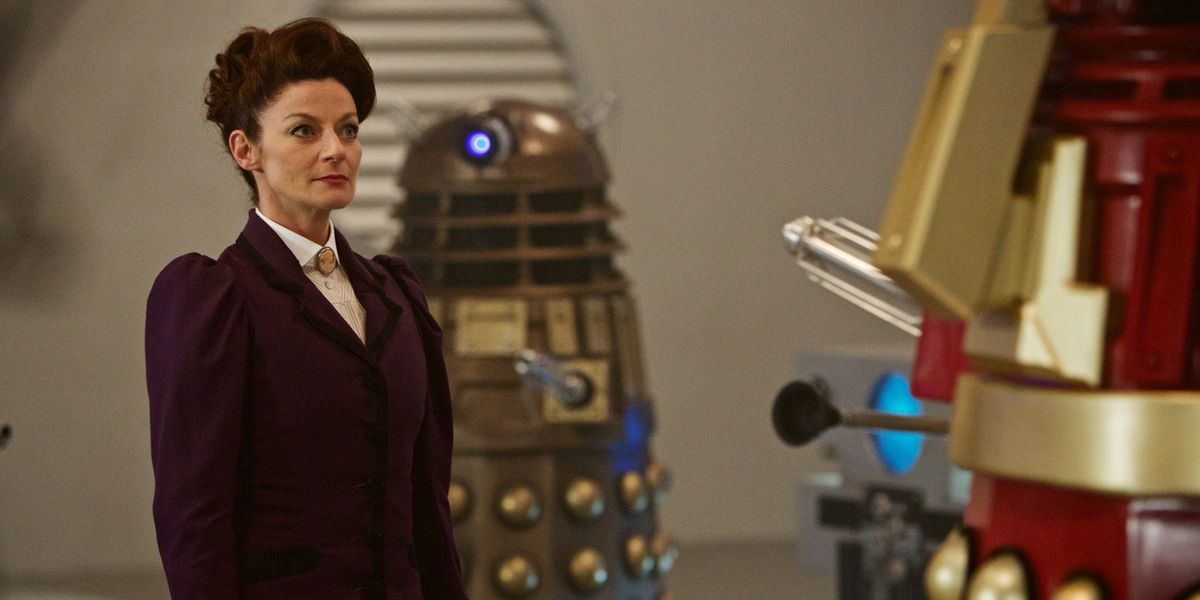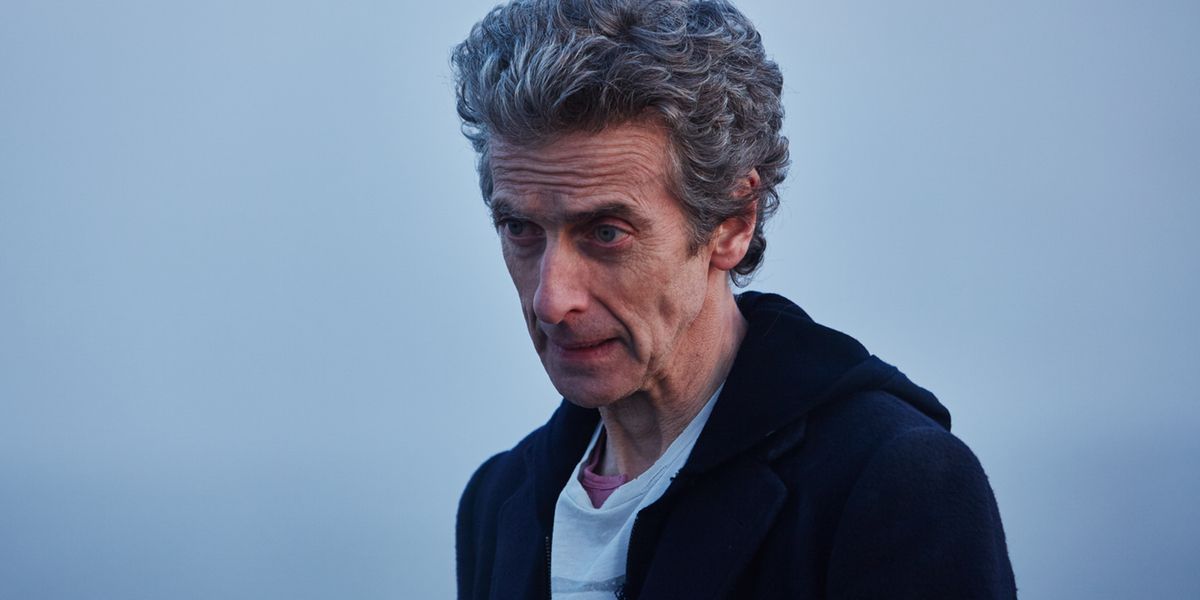[This is a review of Doctor Who season 9, episode 2. There will be SPOILERS.]
-
It is surprising to think that through all of his various regenerations, more of the Doctor hasn't changed than his physical appearance and aspects of his personality. The recent addition of Peter Capaldi to the line of men who've played Doctor Who brought with it certain changes to the title character beyond his face; namely, his unique, increasingly sloppy style of dress, his crankiness or his "darkness," and, certainly, the constant question of whether or not he is a good man. Those aspects of the Capaldi era have already done a great deal to define the character in the relatively few episodes that he has starred, but it's in 'The Witch's Familiar' that Capaldi Who makes a seemingly drastic change by announcing he's abandoned his signature sonic screwdriver in favor of "wearable" technology
This makes Doctor Who, a Time Lord, a being given to flinging himself across the universe and to the distant past or future, influenced most by the culture of those currently watching him. In other words: a man who can travel through time and space is otherwise anchored to Earth in the year 2015. This is neither good nor bad; it is just interesting in the sense that a character with near infinite access to, well, everything, would narrow the scope of his personal definition to such a specific time and place. One has to wonder whether this is for the benefit of the Doctor, his companion, or solely for the audience at home?
If anything, 'The Witch's Familiar' doesn't seek to answer this question, but rather seeks to ask more. The most common among them being: Why did that just happen?
In these first two episodes of season 9, there have been near-flippant dismissals of events, wherein characters – Time Lords, specifically – address their circumstances by speaking directly to an audience. The audience is presented onscreen, but it is clear the characters are also addressing the viewers. It's not quite breaking the fourth wall, but it's close. During last week's 'The Magician's Apprentice,' Missy announced she was still among the living by basically telling everyone to accept it and move on. Here, the Doctor pulls something similar when he briefly appropriates Davros' chair to spin around a room full of Daleks, pointing a gun that looks like an industrial-sized whisk at them and mocking their inability to penetrate the chair's force field. After surviving the Dalek's first salvo – thanks to the aforementioned force field – the Doctor is seen drinking a cup of tea. It's odd, but it's made more odd by his calling attention to it, and then telling everyone (the Daleks and the audience) to just forget about it; he's the Doctor.
There is an equivalent here; it's when people announce they have done or seen something, but they can't tell you what or how they feel about it. It's particularly prevalent on social media, especially among those who report on entertainment and announce having participated in an event they cannot talk about, or say things like "Holy cow!" (often not using the word "cow"), without providing any context or follow-up. And for whatever reason, Doctor Who seems to be practicing something similar – the not-so-subtle art of announcing something as odd, and then telling the audience to ignore it.
And so, by reintroducing Missy and having the Doctor enjoy a cup of tea while battling a group of Daleks, the show appears to be priming the audience for its abandonment of the sonic screwdriver, in favor of a pair of sunglasses. This goes back to the original point that, while the Doctor has changed the way he looks several times, his tools – i.e., the sonic screwdriver and the Tardis – have remained relatively unchanged. Sure, there's been a visual update to both, but this feels like the first time a constant has been relinquished in favor of something new.
Unlike the cup of tea, though, the Doctor at least offers up some explanation as to why he's given up his screwdriver. As cursory as "Too many bad memories" is in terms of clarification, it is given some context by the Doctor's run-in with and seeming abandonment of a young Davros. This event not only makes a go of explaining his preference for wearable tech over his sonic screwdriver, it also offers a sort of flimsy framework to these first two episodes, by once again underlining the Doctor's oft-asked question of whether or not he is a good man.
Season 8 largely concerned seeking an answer to that question – and it was more or less resolved when Missy gave her nemesis an army of Cybermen, which he subsequently turned down – the season 9 premiere and its follow-up, then, felt intent on underlining the answer, as though refusing a nigh-indestructible army wasn't clear enough, or the writers simply wanted to make another pass at the idea. At any rate, the Doctor and Davros appear to come to an accord as to what makes the Time Lord tick. The answer: compassion.
The realization and understanding of this seems more for the benefit of the character than the audience. The Doctor's questioning of his goodness never felt as though it had manifested onscreen beyond the text – that is, the argument that the Doctor was not a good man was not compellingly presented through his actions, but rather through his repeated posing of the same question.
The epiosde's denouement, in which the Doctor travels back in time to save young Davros, seems to have finally put this issue to rest. Capaldi's Doctor may be a little darker, a little angrier than previous iterations, but he's still driven by the same "good" impulses. With that question answered, perhaps season 9 can turn its attention to other aspects of the Doctor, like his sudden fondness for wearable tech.
-
Doctor Who continues next Saturday with 'Under the Lake' @9pm on BBC America. Check out a preview below:
Photos: Simon Ridgway/BBC



